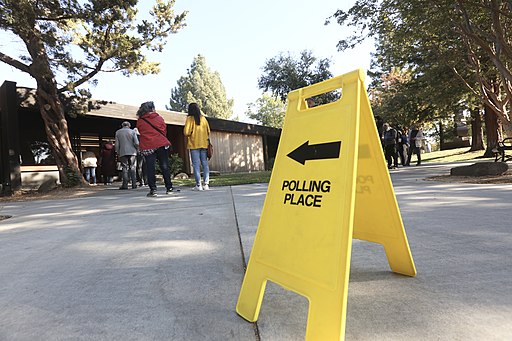
“Section Three of the Fourteenth Amendment is self-enforcing,” Steven Calabresi writes at The Volokh Conspiracy. “It is ‘the supreme Law of the Land’ binding on each of the 50 State Secretaries of State and their subordinates who draw up primary or general election ballots.”
Calabresi believes former president Donald Trump has disqualified himself as a candidate for president per that constitutional provision by engaging in “insurrection or rebellion” against the United States, and that those Secretaries of State must, therefore, ban his name from upcoming ballots.
When Calabresi calls the provision “self-enforcing,” he means that “no jury verdict is required.” A Secretary of State simply decides that Trump is an insurrectionist and that’s that. It’s over. He’s done. He may not appear on your ballot, and you may not vote for him.
Unlike Mr. Calabresi, I’m not a professor of law, but I have at least three problems with his claims.
First of all, Section 5 of the 14th Amendment makes clear that no, it isn’t “self-enforcing.” “The Congress,” it says, “shall have power to enforce, by appropriate legislation, the provisions of this article.”
Secondly, the section he cites forbids insurrectionists to hold, not to run for, office.
And thirdly, when the 14th Amendment was ratified in 1868, there was no such thing as “ballot access” under which Secretaries of State had any say at all over which candidates Americans could vote for.
Until the 1880s, all American election ballots were, effectively, “write-in” ballots. At the polling place, the voter wrote out his choices, or verbally dictated them to an election official if the voter himself couldn’t write, or simply cast a pre-printed ballot provided to him by his preferred political party (yes, “his;” women weren’t allowed to vote until 1920).
Unless we credit the ratifiers of the 14th Amendment with prophetic abilities, AND assume that they didn’t really mean it when they assigned enforcement of the “insurrection” provision to Congress, AND assume that such “self-enforcement” also magically bypasses the court system set up to adjudicate claims under both the Constitution and subordinate legislation, Calabresi’s argument simply doesn’t hold water.
Personally, I’m in favor of returning to the “write-in ballot,” which would inherently require that election of an “insurrectionist” be challenged in the courts after the votes are counted. OK, actually I’m in favor of dissolving the government, but barring that, we should get the government out of the job of deciding who we may or may not vote for.
And even accepting the legitimacy of the existing system, the only legal way to bar Trump, or anyone else, from the ballot is to prove to a court’s satisfaction that he is indeed an “insurrectionist.”
Which, frankly, doesn’t seem like a very high bar.
Thomas L. Knapp (Twitter: @thomaslknapp) is director and senior news analyst at the William Lloyd Garrison Center for Libertarian Advocacy Journalism (thegarrisoncenter.org). He lives and works in north central Florida.
PUBLICATION/CITATION HISTORY
